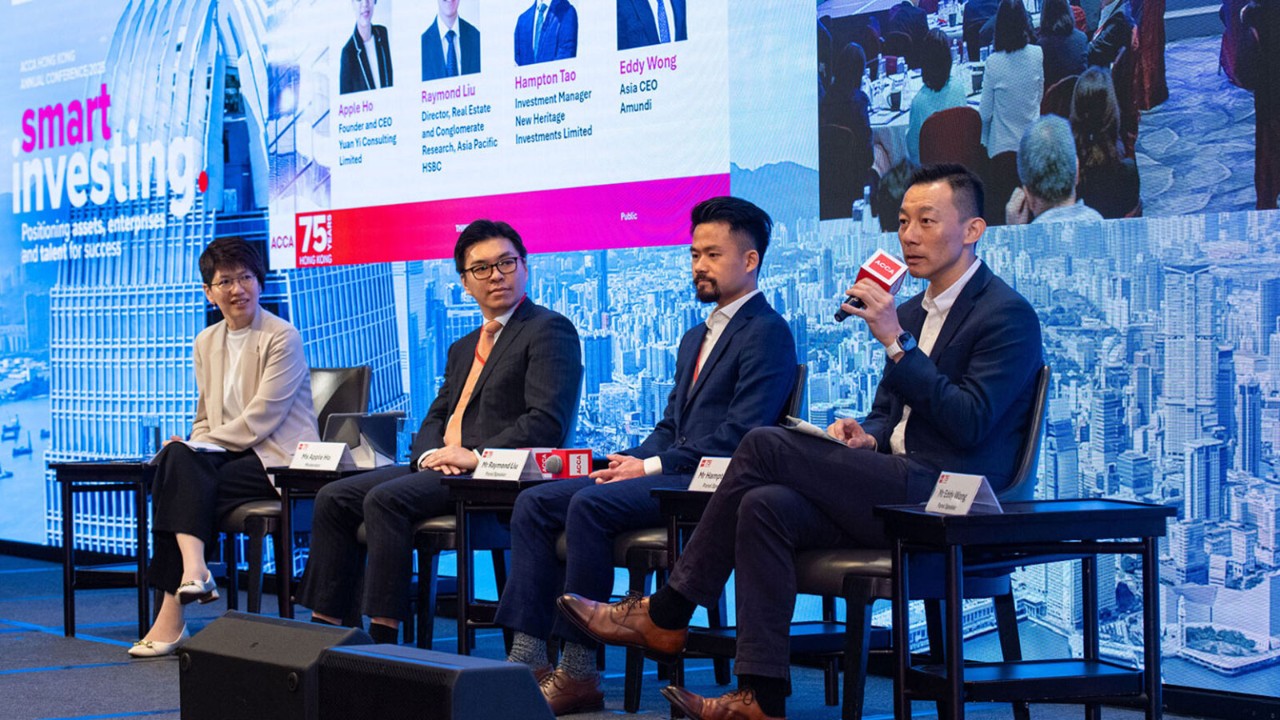
The global economy faces mounting challenges as trade tensions escalate and major economies grapple with varying growth trajectories, according to Professor Terence Chong, executive director of Lau Chor Tak Institute of Global Economics and Finance and associate professor of economics at the Chinese University of Hong Kong.
Delivering a keynote speech on the global economy at the ACCA Hong Kong Annual Conference 2025, Chong presented a stark outlook for the US economy. ‘Following Trump’s announcement of reciprocal tariffs and trade barriers, the US economy will slip into negative growth territory,’ he warned. This prediction has materialised, with US GDP contracting 0.3% in Q1 2025, while unemployment has edged up from 4.18% in April to 4.24% in June 2025.
Europe shows more resilience, with modest GDP growth and unemployment rates dropping from 6.3% in March to 6.2% in April 2025. European central banks are cutting interest rates more aggressively than the US Fed, strengthening both the euro and pound against the US dollar, which has hit a three-year low.
‘China has expanded exports to ASEAN, the EU and other markets’

China’s economic adaptation has been noteworthy. ‘China’s 2025 export volume exceeds 2018 levels, when the first trade war began. While exports to the US have fallen, China has successfully expanded its exports to ASEAN, the EU and other global markets,’ Chong said. He identified deflation as China’s primary economic challenge.
Hong Kong SAR’s economy shows strength, posting nine consecutive quarters of positive GDP growth to HK$3 trillion (US$380bn). ‘Hong Kong’s strength as an international financial centre lies in its balanced diversity,’ Chong explained, citing its impressive market capitalisation to GDP ratio, fourth-ranked global foreign exchange market position, as well as the expanding asset management sector.
Strategy reset
While moderating a panel discussion on ‘Smart Investing in Your Assets, Latest Trends and Strategies for Success’, Apple Ho, founder and CEO of Yuan Yi Consulting, raised the fundamental questions facing today’s investors. She asked: ‘On a practical level, how should we approach investing? What types of assets should we focus on in the near term?’
‘US exceptionalism is starting to fade,’ observed Eddy Wong, Asia CEO of Amundi. ‘While it was once acceptable to concentrate investments in US assets, that strategy may no longer be sufficient.’ He stressed the need for a more balanced global allocation approach, highlighting European markets, the euro and gold as viable alternatives to US dollar-denominated assets.
‘We are seeing a trend toward combining strong returns with ESG’
Mutual fund managers are increasingly turning to tokenisation, according to Wong. ‘Traditional three-to-four-day settlement periods are outdated,’ he stated, referencing Hong Kong’s first tokenised retail fund as evidence of the industry’s evolution. The key focus now lies in leveraging new technology to enhance traditional asset structures, he said.
Wong emphasised the continued relevance of environmental, social and governance (ESG) investing in the Asian market, despite ongoing concerns about greenwashing. ‘In the Greater China region, while performance still takes priority over ESG considerations, we are seeing a trend toward combining strong returns with ESG elements,’ he said.
He advocated a practical approach. ‘The focus should be on helping traditional, less environmentally friendly corporations establish clear frameworks for transitioning to more sustainable practices,’ he said.
Family offices
The rise of digital assets is enabling family offices to adopt more holistic investment approaches, said Hampton Tao, investment manager at New Heritage Group. ‘While the volatility of digital assets was previously a deterrent, we have now reached a point where a portfolio of crypto venture funds, hedge funds and crypto spot markets can meet almost the needs of any family office investor,’ he explained, highlighting the sector’s maturation.
Nevertheless, Tao underscored the importance of measured decision-making in digital investments. ‘I’ve advised our family’s senior members that we don’t need to chase every opportunity in digital assets, but we must understand the risks in this emerging sector,’ he noted. This, he said, aligns with family need for both wealth preservation and growth.
‘Cash and treasury instruments are leading the tokenisation trend’
As competition for family office business intensifies across service providers, Tao said that investment strategies are primarily shaped by four key considerations. ‘It all boils down to your return expectations, risk tolerance, liquidity needs and distribution policy.’
Tao provided context for the scale of the real-world asset market. ‘As of today, the crypto market’s US$3 trillion capitalisation represents less than 3% of the global equity and fixed income market combined, while the stablecoin market stands at US$250bn, less than 10% of total crypto market capitalisation.’ He noted that cash and treasury instruments are leading the tokenisation trend, with major players like Tether and Circle dominating stablecoin issuance.
Optimism grows
In the traditional markets, Chinese equities are poised for positive developments over the next 12 and 18 months, despite investor concerns about downside risks and geopolitical tensions, according to Raymond Liu, director of real estate and conglomerate research, Asia Pacific, at HSBC.
‘DeepSeek has exceeded previous expectations about China’s technological capabilities and showcased the country’s innovation potential,’ Liu said. ‘There’s a broader shift in government policy focus, moving from purely maintaining stability to actively pursuing economic growth targets.’
‘Markets are active, IPO activity robust and bond trading strong’
Hong Kong’s real estate market shows positive momentum, driven by robust financial sector activity. ‘Recent months have shown encouraging signs in Hong Kong, with active stock markets, robust IPO activity and strong bond trading,’ Liu reported. ‘The market benefits from the current interest rate environment and falling mortgage rates.’
Hong Kong’s broader recovery is underpinned by demographic trends. ‘The talent admission scheme and increased international student enrolment have driven population growth from 7.5 to 7.6 million, making it one of Asia’s fastest-growing cities,’ Liu said. ‘While investors are returning to the housing market, a complete recovery will take time, given the high levels of new supply.’
More information
Register to access the on-demand ACCA Hong Kong Annual Conference 2025
Read our article from the conference, ‘Making your mark‘

